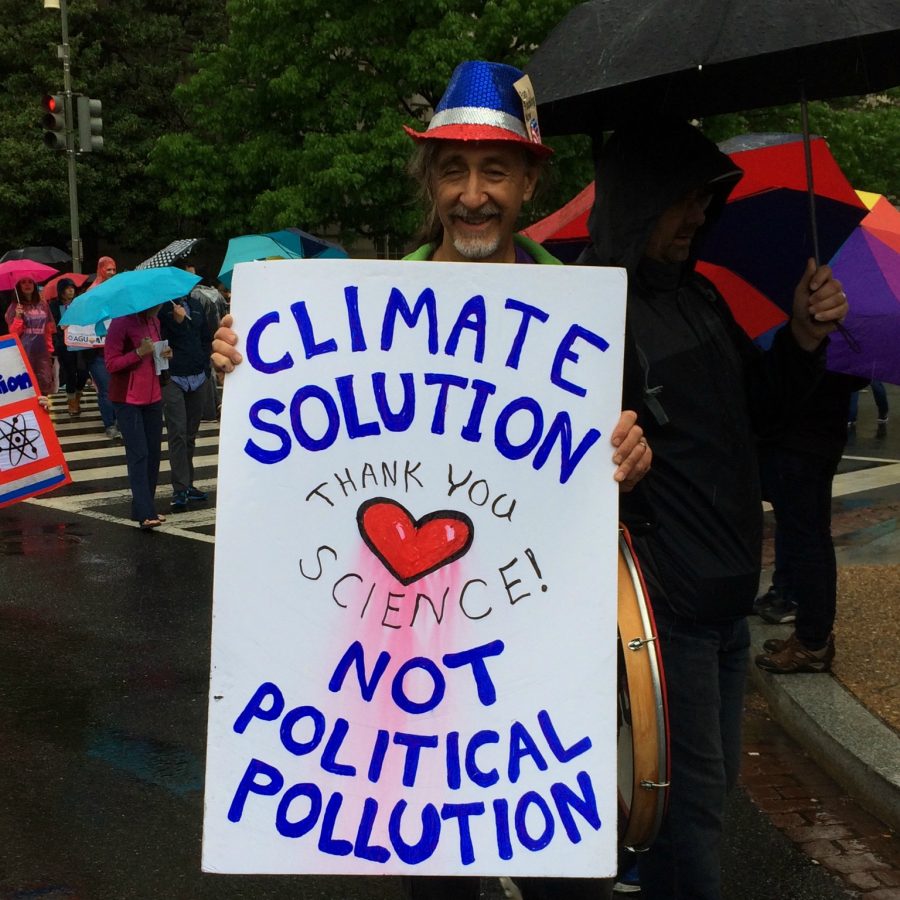Marchers advocate for scientific awareness
The heavy rain did not deter many committed protesters, even if it ruined their signs and clothing. (Photo Credit: Colter Adams)
April 29, 2017
The March For Science, an international rally and protest aimed at drawing attention to President Trump’s continued disregard of scientific issues such as climate change, took place last Saturday, drawing hundreds of thousands of marchers across the globe in over 600 cities. (Story and photos by Colter Adams)
[huge_it_gallery id=”39″]
The event was planned in light of the success of the Women’s March, after which organizers on Reddit and Facebook looking to promote scientific literacy to the general public, began a social media campaign that attracted over 300,000 members in less than a week.
Timed to take place on Earth Day, the event was also used as a platform for environmental advocates. Many of them were protesting Trump’s reduction in EPA funding and regulation, as well as his skepticism of climate change and subsequent global carbon emission agreements such as UNFCCC Paris Agreement. For example Mona Hanna Attisha, a public health advocate and pediatrician known for first bringing knowledge of the Flint water crisis to the media and public, joined the march as a co-chair of the event.
The event also drew in some of the biggest names in science such as Bill Nye, a famous scientific populist and mechanical engineer, and Lydia Villa-Komaroff, a leading molecular and cellular biologist, both of whom also participated as speakers and co-sponsors in the event. The march was also endorsed by America’s largest scientific association, the American Association for the Advancement of Science (AAAS).

Additionally the march received support from several congressmen such as Bernie Sanders, who congratulated the scientists participating for “fighting back,” and Bill foster, the only member of congress with a PhD in natural sciences.
The march was also criticized by some scientists, such as geologist Robert S. Young and theoretical physicist Sylvester James Gates, who felt that it inadequately portrayed science as a political and therefore biased field. Furthermore, that it feeds into the rhetoric of the right that scientists in general have a liberal bias and their data and conclusions are therefore untrustworthy.
Others still, such as the AAAS CEO Rush Holt Jr and meteorologist Eric Holthaus, suggested that the field has always been in conflict with politics, from even the times of Galileo. They stressed that advocacy for scientific literacy and a scientific approach to politics is especially fundamental at a time where so much misinformation and bias is so easily accessed.
More information about the march can be found here.









